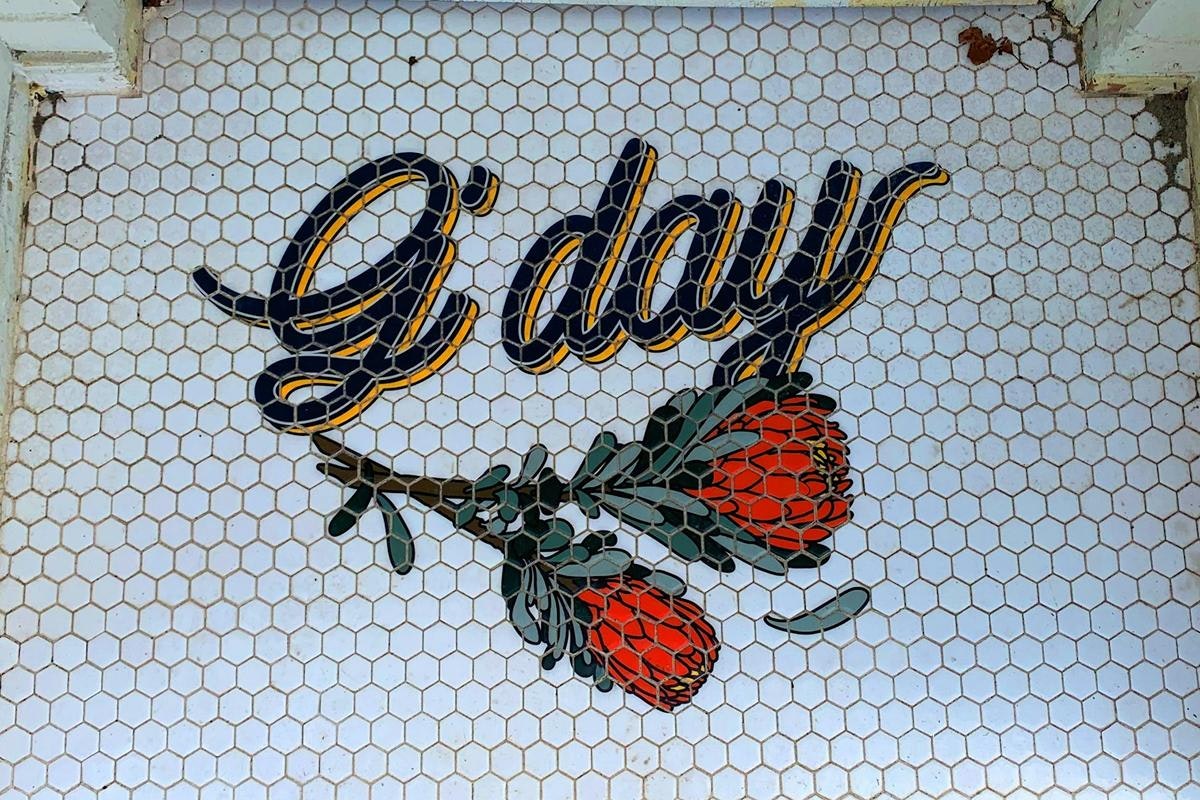Dictionary for Latins in Australia: Key words and expressions for everyday life
Discover the ultimate dictionary for Latins in Australia! featuring essential Australian words, phrases, and abbreviations to help you navigate local culture and avoid embarrassing situations. Perfect for newcomers and long-time residents alike!

By:
LINA AVILA HENAO
Last Updated:
Oct 6, 2024
Tags:
#aussie-culture #learn-english
In this article
In this post you will find a selected group of words, phrases and expressions that are very common in Australia and that I am absolutely sure will be useful to you during your stay.
Believe it or not Australians have a lot of abbreviations or words (some created by them) that you need to know because they are going to be present at work, in the day to day even when you are in the doctor’s room.
I did not know many of these words when I arrived and many times my cheeks blushed and I was embarrassed. Also it was difficult for me to understand the meaning and use them in sentences, because they need to be understood in a context. Here is the list with some examples!
Aussie 'Day to Day' vocab
Available: Accesible, obtainable
The house will be available for renting from next week
Awkward: Uncomfortable
He asked an awkward question
Arvo: Abreviación de afternoon
B&B: Bed & Breakfast. It is a type of accommodation that offers accomodation and also breakfast, you will see this more often in towns. It seesms like a hotel but smaller and more family oriented.
Barbie: To make a BBQ/ Barbecue
Bottle shop o Bottle-o: retail store that sells alcoholic beverages.
Bloody: express annoyance or emphasis. It's considered mildly vulgar.
Bloody expensive
That was a bloody good movie!
Bucks: Dollars.
Bucks = 10 dólares.
Cab: Taxi.
I will get a cab for work
Catch you later: See you later
Come along: to accompany someone or to join in an activity. It can also imply that someone is making progress in a task or situation
How is the project coming along?
Countryside: Rural area
Challenging: Something that presents difficulties or requires effort to overcome.
My mother in-law is very challenging = Mi suegra es muy complicada
Chores: Routine tasks that are typically done around the house. These can include activities like cleaning, doing laundry, washing dishes, cooking, and yard work.
We divide the house chores equally = Nosotros dividimos los oficios de la casa por igual.
Chubby: someone or something that is slightly overweight, typically in a way that is considered cute.
Deal with: To manage or handle a situation
She is dealing with all sorts of the problems at work
Doona: To manage or handle a situation. It’s a thick, soft blanket filled with materials like down, feathers, or synthetic fibers, designed to keep you warm
Double check: Verify or confirm something again to ensure accuracy or correctness
Drop Off: To deliver someone or something to a specific place
My mother drop me off in the train station
Eski: Type of container or cooler used to keep beverages cold.
Flat: Surface that is level, smooth, and without bumps or irregularities.
"The table is flat."
When is about an electronic device it means that the battery runnned out completely.
My laptop went flat = Se me descargó el computador
Flat: Flat also refers to an apartment
Footy: Australian Football
For sure!: Indicate certainty or agreement. It means "definitely" or "without a doubt.
Are we going to the game? For sure!
Gap: A space or interval between two things, often used to indicate a difference or a lack of something.
There is a gap in the market
There is a gap between the train and the platform
Gday: is an informal greeting commonly used in Australia. It's a friendly way to say "good day"
Get on: To board or enter
Get on the bus
Get off: To disembark or leave
Get off the bus
Give a shot: try something or attempt to do something, often when you're unsure of the outcome. It refers to taking a chance.
Go crazy: to act in an uncontrolled or wild manner, often associated with excitement or enthusiasm
Let’s just go crazy tonight
I’m about to go crazy!
Hang around: to stay in a place without a specific purpose or to spend time with someone casually
Heaps: Informal term that means a large amount or a lot of something
There are heaps of mosquitos in this town = Means there are a lot of mosquitos in town
I have heaps of work to do = means you have a lot of work to do
Headquarter: refers to the main office or central location of an organization
Homebrand: from the supermarket's own brand
How is it going?: It’s the same as "How are you?"
Issue (as verb): Means to formally provide something, like documents or items. For example issue date of a passport.
Issue (as noun): problem. They need to solve the issue with the energy
It does not work: Something is not functioning properly or as intended. It is used to refer to a relationship or a job.
Just: refers to something that has happened only a few minutes ago or is exactly what you expected.
He is just as I imagined
The delivery just has arrived
Kind of: informal phrase used to indicate a degree or a certain extent of something. It can mean "somewhat" or "a little".
The movie was kind of boring = The movie was somewhat boring.
Last one left: This expression refers to the last thing available.
Are there any beers in the fridge? Yes, last one left
Layout: plan or design of a house or a particular place.
Let me know: casual way of asking someone to inform you about something later. It expresses a desire to be updated or to receive information.
Loaf: a slice of bread or several slices of bread (loaves).
Loo: toilet.
Maccas: abbreviation for McDonald’s.
Mozzy: mosquito.
Must-have: term used to describe something that is considered essential or highly desirable.
Never mind: is a phrase used to indicate that something is not important or that the listener shouldn't worry about it.
No drama/s: the same as "no worries" to refer to that there is no problem.
No worries: it’s the Australian way of saying "don’t worry".
One of a kind: unique/exclusive.
That flower vase is one of a kind: That vase is unique.
Oppshop: refers to a store where you can find secondhand items.
Out of your pocket: someone is paying for something out of their personal funds rather than using company money, government funds, or any other source.
The bill in the doctor was paid from my own pocket
Over the counter: refers to medications or products that can be purchased without a prescription from a healthcare provider. These items are available for sale directly to consumers at pharmacies, supermarkets, or other retail locations
Some medicines in Australia are not over the counter
Own: to possess or have something as one's property.
I have my own business
Oz: a way to refer to Australia.
Package: refers to a wrapped or boxed item, typically for shipping or delivery
Pardon: it is a term used to ask the other person to repeat what they said because you couldn’t hear them properly.
Pedestrians: refers to people who are walking, especially in areas designed for walking, such as streets, sidewalks.
Pick up:
To lift or raise something
I need to pick up the book from the floor = means to lift the book off the ground.
To collect someone or something
I will pick you up at the airport = to go to the airport to collect the person.
The point to pick up the kid is near the entrance: The point to pick up the kids is at the entrance.
Pick up the phone: answer the phone.
Prezzy: gift.
Queue: line.
There was a long queue in the bank
Quirky: strange, extravagant, unconventional.
He has a quirky sense of humor
Rain check: means to reschedule an appointment. If you were supposed to go out with someone and they say if they can rain check, it means something came up and they want to reschedule the commitment for another day.
Rapt: to be completely fascinated by something.
Rely on: means to trust or depend on something.
I rely on public transport to go to work
Rip off: to scam someone.
Rego: abbreviation that refers to the "registration" of vehicles. It is the process by which a vehicle is officially registered to operate on public roads
Reckon: I reckon = I think that.
Reliable: describe someone or something that can be trusted to perform well or to consistently meet expectations
The source of information is very reliable
Roughly: approximately.
See you later: see you later or until later. It’s used for farewells at the end.
Sicky: abbreviation of sick day – a medical incapacity day, the reason for not being able to go to work. In most cases, a medical excuse is needed to support the day of absence.
Stuffed: mean feeling exhausted or overwhelmed also being very full, especially after eating.
Struggle: means battle, combat, effort. It’s used to say that you are struggling with something.
I am struggling with the new job
Shy: describe someone who feels nervous or uncomfortable in social situations.
Senior: older adults, but it also refers to a higher rank in a job position.
He is the senior manager
Sunnies: sunglasses.
Ta: thank you – thanks.
Tantrum: emotional outburst, typically involving anger or frustration, often characterized by crying, shouting, or uncontrolled behavior
Telly: television.
Tradie: a person who works in construction.
To point: is a verb that means to indicate or direct attention to something, often by extending a finger or a hand towards it.
To be on time: to arrive on time. It’s used to refer to you or someone exactly on time to a place.
He arrived at the school on time
(To be) late: arrive after the expected or scheduled time.
She is always late
(To be) fed up: to be annoyed, frustrated, or tired of something, often because it has been going on for too long or has become intolerable.
I am so fed up of taking the bins out
(To be) a good egg: to be a good person.
He is such a good egg: He is such a good person.
Taking the piss: to make fun of someone or something. Not to take it seriously.
Toiletries: hygiene items that include toothbrush, toothpaste, deodorant.
Touch on: used to say that the Myki has been activated.
Touch off: used to say that the Myki has been deactivated.
Ute: truck with a tray.
Your shout: your turn to treat or invite someone to eat.
Wasted: technically means something that is very worn out, but colloquially it refers to someone who is completely drunk.
Well: is sometimes used to start a sentence and say "well."
Well! The party was great
Where are you from: This question can mean what country you are from, but it can also sometimes refer to which suburb you live in (depending on the context).
Wholemeal: means made with wholemeal flour.
Whole grain: means that the product contains seeds.
Whole grain bread: bread with seeds.
Worth: value. It is used to say that something is valuable
The park is beautiful, it’s worth a visit
Wondering: Thinking about something.
I wonder if you are coming to the party
Summing up
We hope you have enjoyed our edition on everyday words. Keep reading the rest of our editions, which will be organized by specific themes, and try to learn them!


